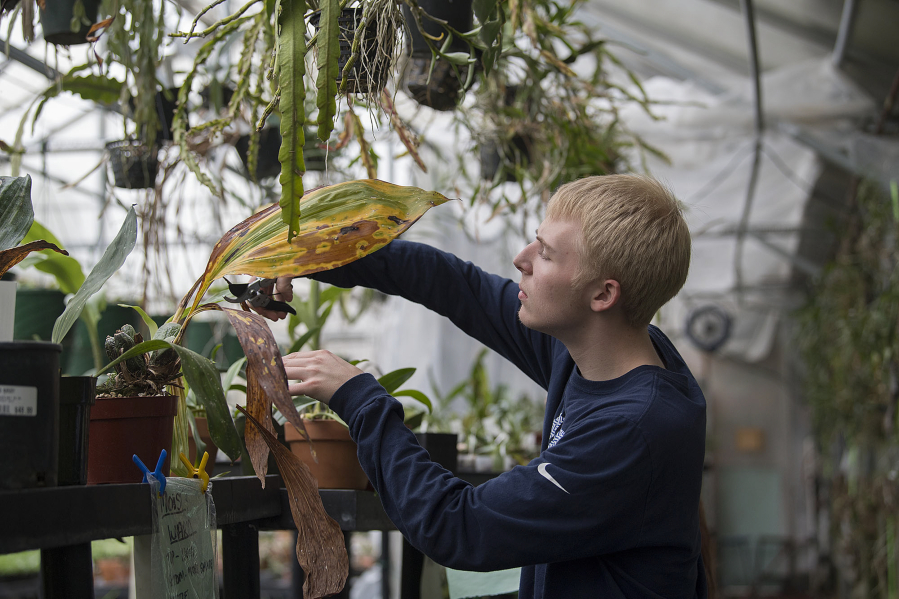The back door of Hudson’s Bay High School’s horticulture classroom leads out to a 1 acre site with five greenhouses.
It’s basically a giant science lab where students can experiment with greenhouse management, as well as landscape and floral design. Some horticulture students will make corsages for prom, which coincidently has a secret garden theme this year.
There are 662 Vancouver Public Schools students enrolled in natural resources and horticulture classes. Every high school has wide-ranging programs, but also a niche subject. Fort Vancouver specializes in growing edibles and native plants. Columbia River focuses on sustainability — growing food without hormones or sprays, using native plants and turning food into fertilizer.
Teacher Steve Lorenz’ said Bay’s forte is nursery landscape. Bay’s program started in 1973, and Lorenz took over in 1994.




